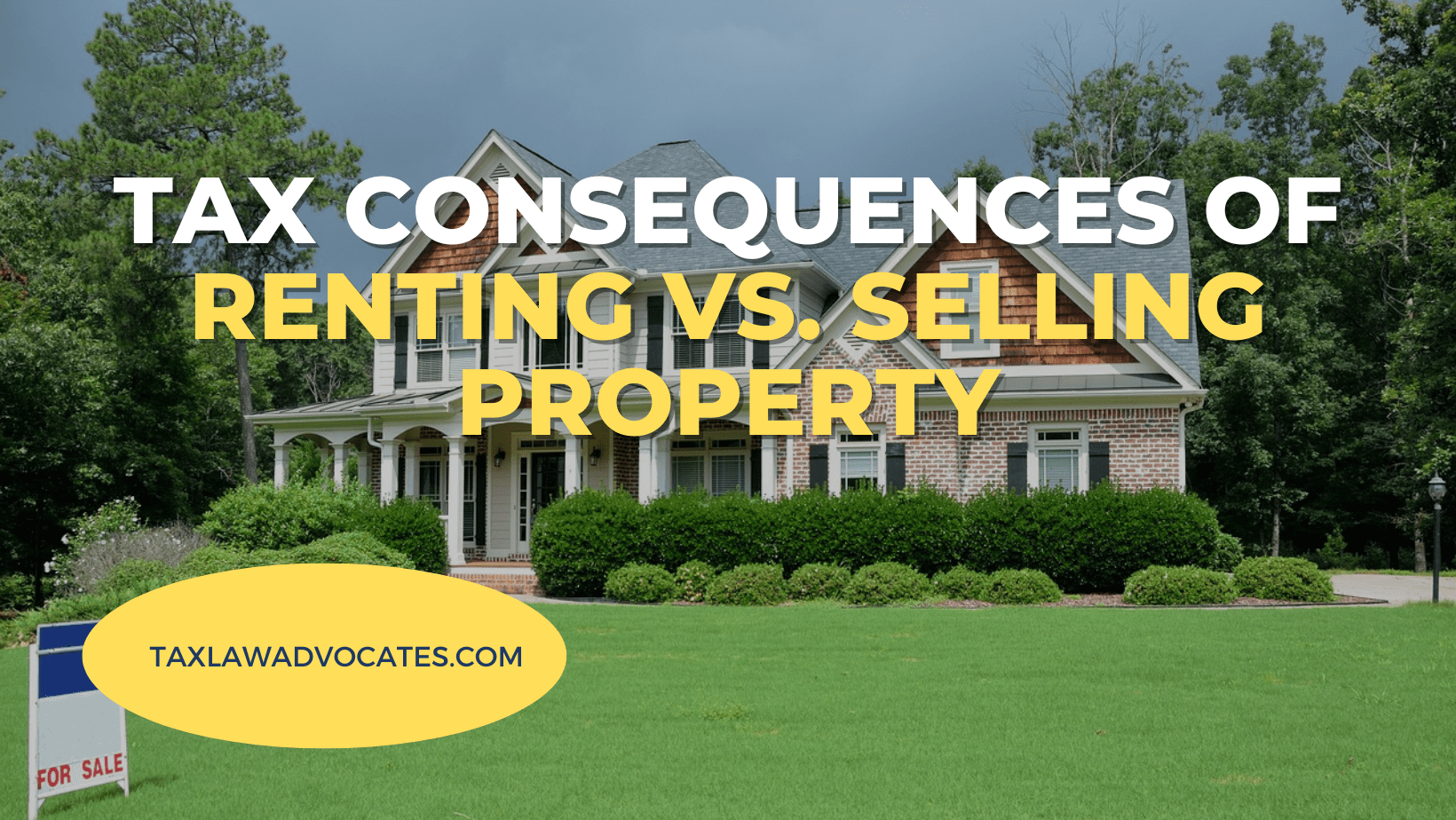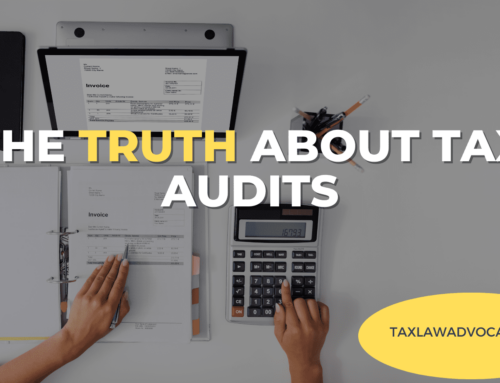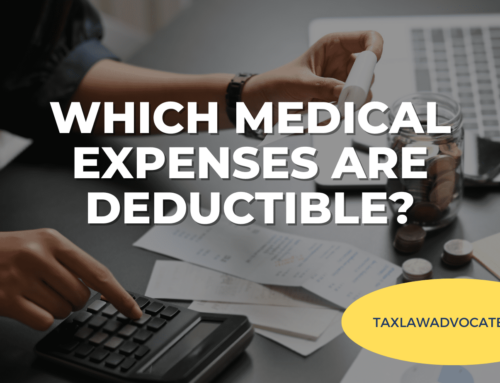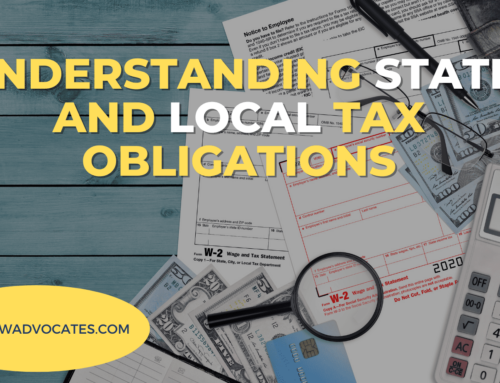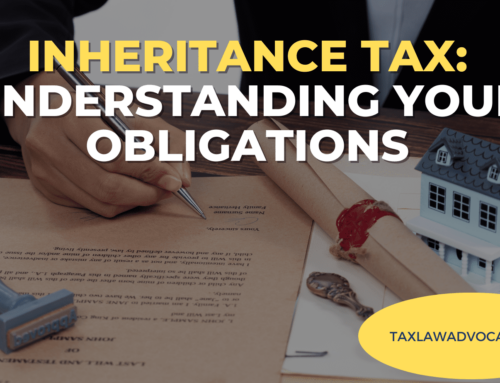At some point in life, you might face a significant decision: whether to rent or sell your property. Factors such as job relocations, financial goals, and personal circumstances can influence this choice. But it’s essential to consider the tax implications of your decision. In this blog, we’ll delve into the tax consequences of renting versus selling property and provide expert advice from Tax Law Advocates to help you make an informed choice.
Your Future Housing Plans
Your intentions regarding future housing play a crucial role in determining whether to rent or sell your property. If you plan to relocate permanently and have no intention of returning to your current location, selling your property is often the preferred choice. The sale proceeds can fund your move and provide a down payment for a new home.
On the other hand, if you’re leaving your property for a few years with the intent to return, renting it out to cover the mortgage costs while you’re away might be more appealing. This option is often chosen by homeowners attached to their property or location. Remember that renting it out means you’ll either become a landlord or need to hire a property manager. Tax Law Advocates can guide you through the tax implications of these choices and help you navigate the rental landscape.
Considerations for Selling
When considering selling your property, the first step is to assess the amount you need to pay off your current loan compared to the current property value. Ideally, your profit from the sale should cover the loan balance and provide some funds for your move or a new property’s down payment. If you’re in a challenging real estate market or face prepayment penalties on your loan, you might explore alternatives, such as a land contract or “rent-to-own” arrangement.
A land contract allows a homebuyer who can’t secure traditional financing to provide a down payment and make monthly rent payments to the seller (you). This rental income can be used to pay off your existing loan. Tax Law Advocates can provide insights into these strategies, helping you widen your pool of potential buyers and navigate a challenging market while minimizing tax implications.
Considerations for Renting
Renting your property can be an attractive option for several reasons:
– If you intend to return to the property in the future.
– To continue paying off the mortgage and generate rental income for eventual capital gains.
Renting with the intention of returning allows you to continue paying the mortgage and profit from the passive income during your absence. The profitability depends on the price-to-rent ratio in your area. A low ratio indicates that buying is cheaper than renting, making rental income more likely to yield a profit. In contrast, a high ratio suggests that owning is more expensive, resulting in narrower cash flows. Tax Law Advocates can provide expert advice on assessing the local market conditions and financial feasibility.
The Costs and Opportunities of Owning a Rental Property
Converting your home into a rental property involves both direct and indirect costs. You need to consider the financial expenses and the value of your time and effort. While hiring a property management company can help, you’ll still need to oversee your investment. Tax Law Advocates can guide you in calculating the costs and potential rewards of owning a rental property, ensuring that you make an informed decision.
Buying or Renting a New Home
When choosing between renting and selling your property, a crucial financial consideration is whether you can afford to buy or rent a new home without selling your current property first. Financial stability, high income, or substantial savings can provide more flexibility. If you can delay selling or renting your property and take the time to explore rental opportunities, you might discover the potential for passive income.
Consider renovating your property to attract higher-paying tenants and maximize your income. However, keep in mind the additional expense of capital gains tax if you eventually sell the property as an investment. Tax Law Advocates can assist you in planning and executing these financial decisions.
Tax Benefits for Selling vs. Renting
The tax consequences of selling and renting a property are fundamentally different. When selling your property, you pay taxes on the capital gains from the sale. However, the IRS provides an exemption of up to $250,000 in capital gains for individuals (or $500,000 for married couples) who have owned and lived in the home for at least two of the previous five years. This exemption significantly reduces or eliminates the tax burden when selling your home.
In contrast, when you rent your property, your rental income is categorized as income and is taxed based on your income bracket. Fortunately, many expenses related to your rental property can be used to lower your tax burden. Depreciation and property management fees are just a few examples of deductible expenses. Tax Law Advocates can provide expertise in navigating the complexities of rental property taxation and ensuring you take full advantage of potential deductions.
Deciding whether to rent or sell your property is a significant financial decision, and understanding the tax implications is essential. Tax Law Advocates is your trusted partner in navigating the complexities of real estate tax planning. We provide expert guidance to help you make informed decisions that align with your financial goals. To explore the tax consequences of your real estate decisions and receive personalized advice, contact Tax Law Advocates at 855-612-7777 or visit our website. Make the right choice for your property, finances, and future with Tax Law Advocates by your side.

